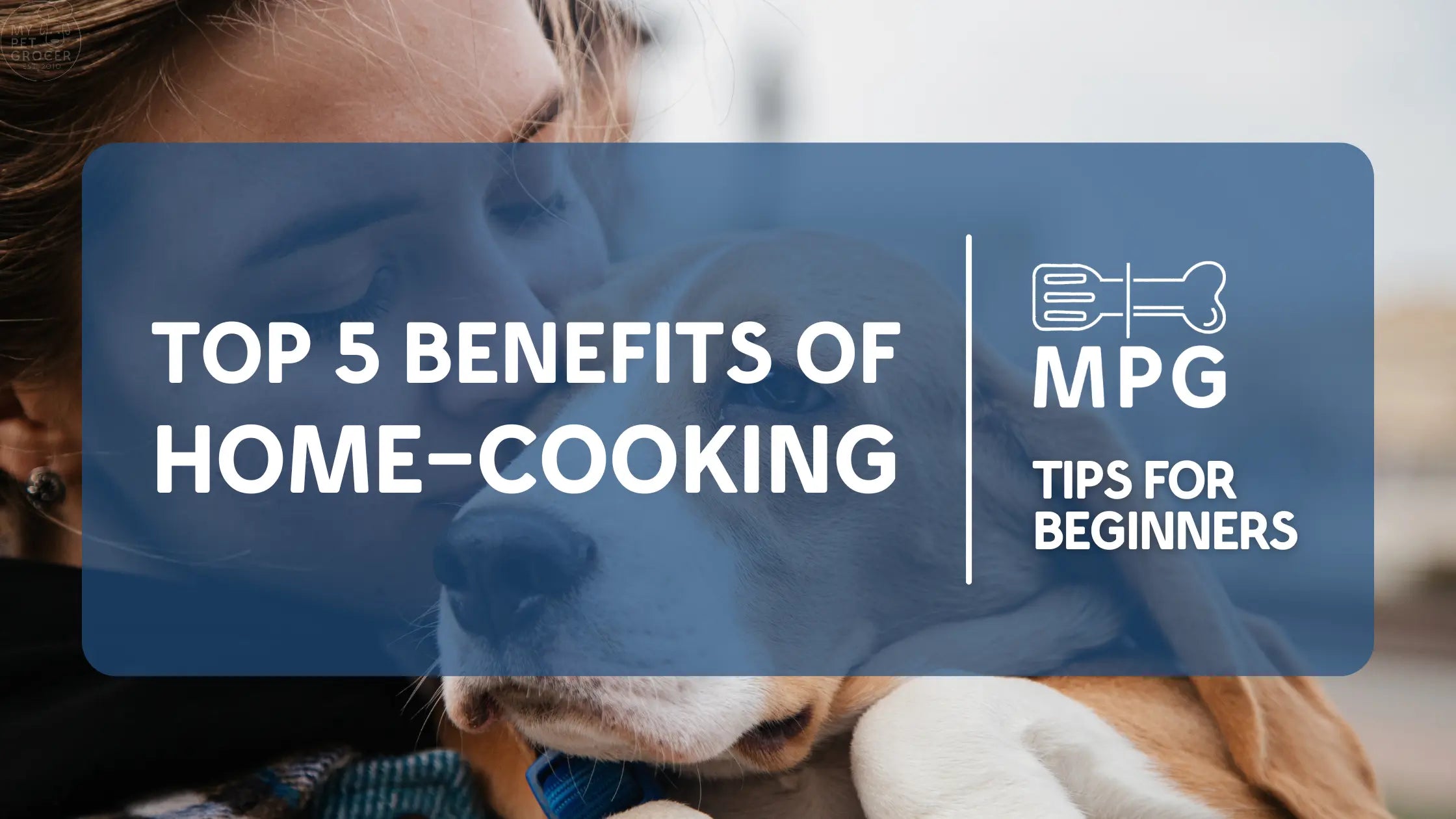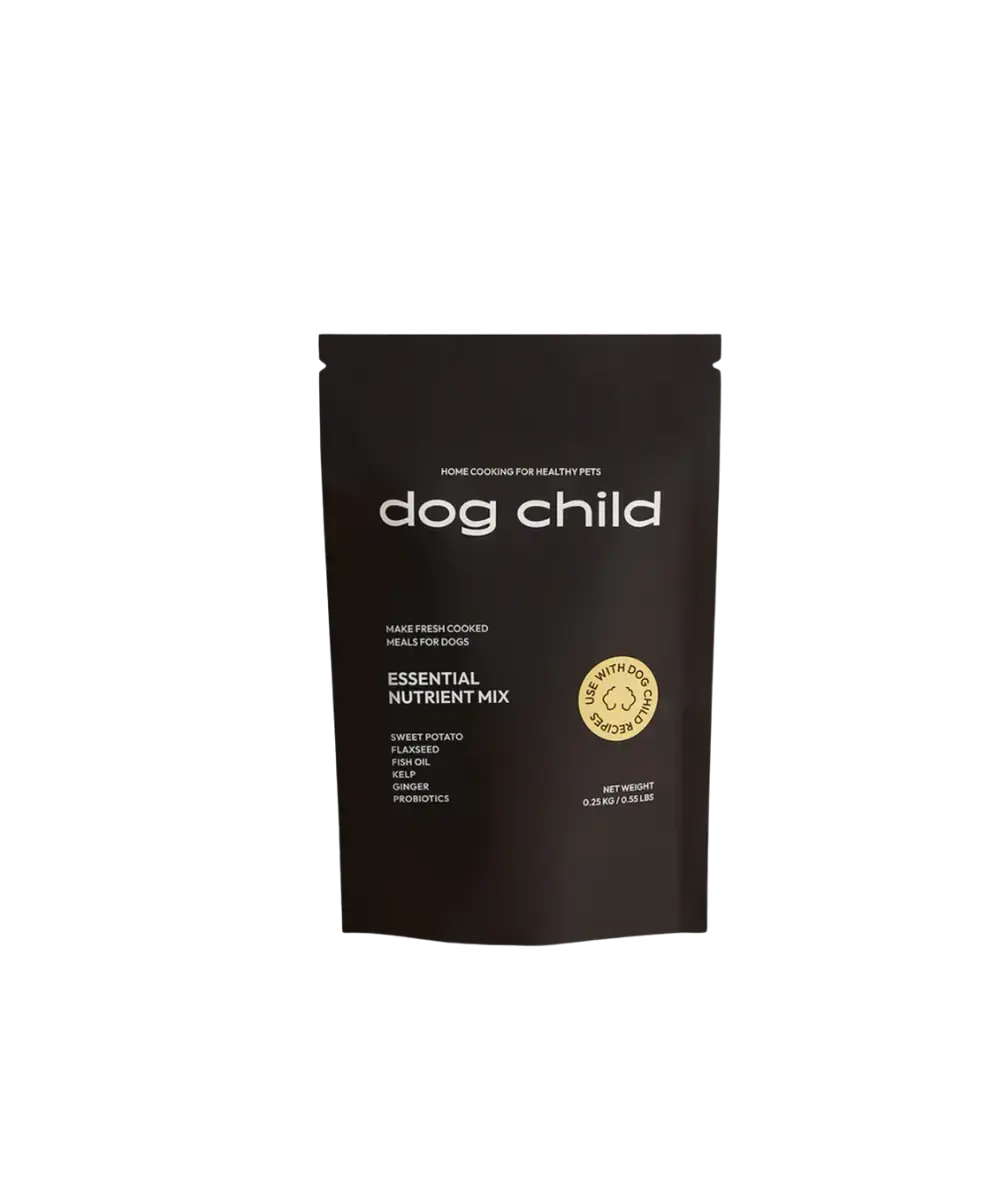
Top Five Benefits of Homecooked Pet Food
Are you considering homecooked food for your pet, but wondering if the benefits are worth the commitment? Spoiler alert: the answer is paws-itively YES! Here are 5 amazing benefits of feeding your furry friend fresh, homemade dishes - from controlling ingredients to increasing their lifespan.
1. Control over ingredients and portions:
When you cook for your pet, you know exactly what's going into their food. You can choose fresh, whole foods that are free of preservatives, artificial colors, and flavors, and say goodbye to mystery meats, cheap fillers, and hidden allergens. Healthier ingredients lead to a healthier diet (balanced and correctly portioned, of course!) which lead to a healthier pet.
2. Reduced advanced glycemic end products:
Processed foods are often high in advanced glycemic end products (AGEs), which can damage cells and contribute to chronic diseases like diabetes, heart disease, and kidney disease. Homecooked meals are typically lower in AGEs, as the fresh ingredients you use are not subjected to the extensive and high-heat processing that commercial diets go through.
3. Tailored ingredients and supplements:
Every pet is an individual with unique nutritional needs. With a homecooked diet, you can tailor the ingredients and supplements to your pet's specific needs, taking into account their age, breed, activity level, and any health conditions they may have.
4. The bonding experience:
Cooking for your pet is a fun and rewarding activity for both of you. Include them (safely) in the whole process by letting them sniff ingredients and spend time with their favorite person. They will enjoy the mental stimulation and you will both feel closer and more bonded for it.
5. Potential for longer lifespan:
A group of scientists in Belgium found that dogs fed quality homecooked diets lived an average of 32 months longer than dogs fed commercially produced food. Similarly, a study from Purdue University on Scottish Terriers concluded that even substituting 25% your dog’s diet with whole food (vegetables such as leafy greens) could reduce their risk of developing cancer by up to 90%.
Getting started with homecooking for your pet:
If you're interested in starting your pet on a homecooked diet, there are a few things to keep in mind. First, talk to your veterinarian to make sure that a homecooked diet is right for your pet. They can help you create a balanced meal plan that meets your pet's individual needs.
Once you're ready to switch your pet’s diet, start by introducing small amounts of homecooked food into their current food. Gradually increase the amount of homecooked food over time (we recommend ten days), until they are eating it exclusively.
Monitor your pet for any behavioral or physical changes and make sure you to check in with your vet if you have any concerns.
Remember:
- Homecooking for your pet may be a bigger commitment than scoop-and-serve commercial diets, but it's incredibly rewarding to provide your pet with the healthiest possible diet and know you are helping them live a long, happy life.
Happy cooking!


